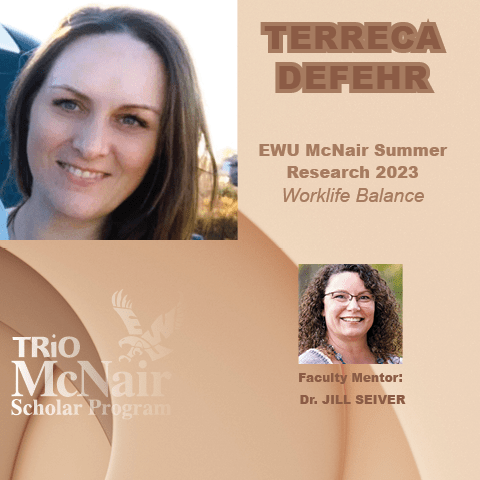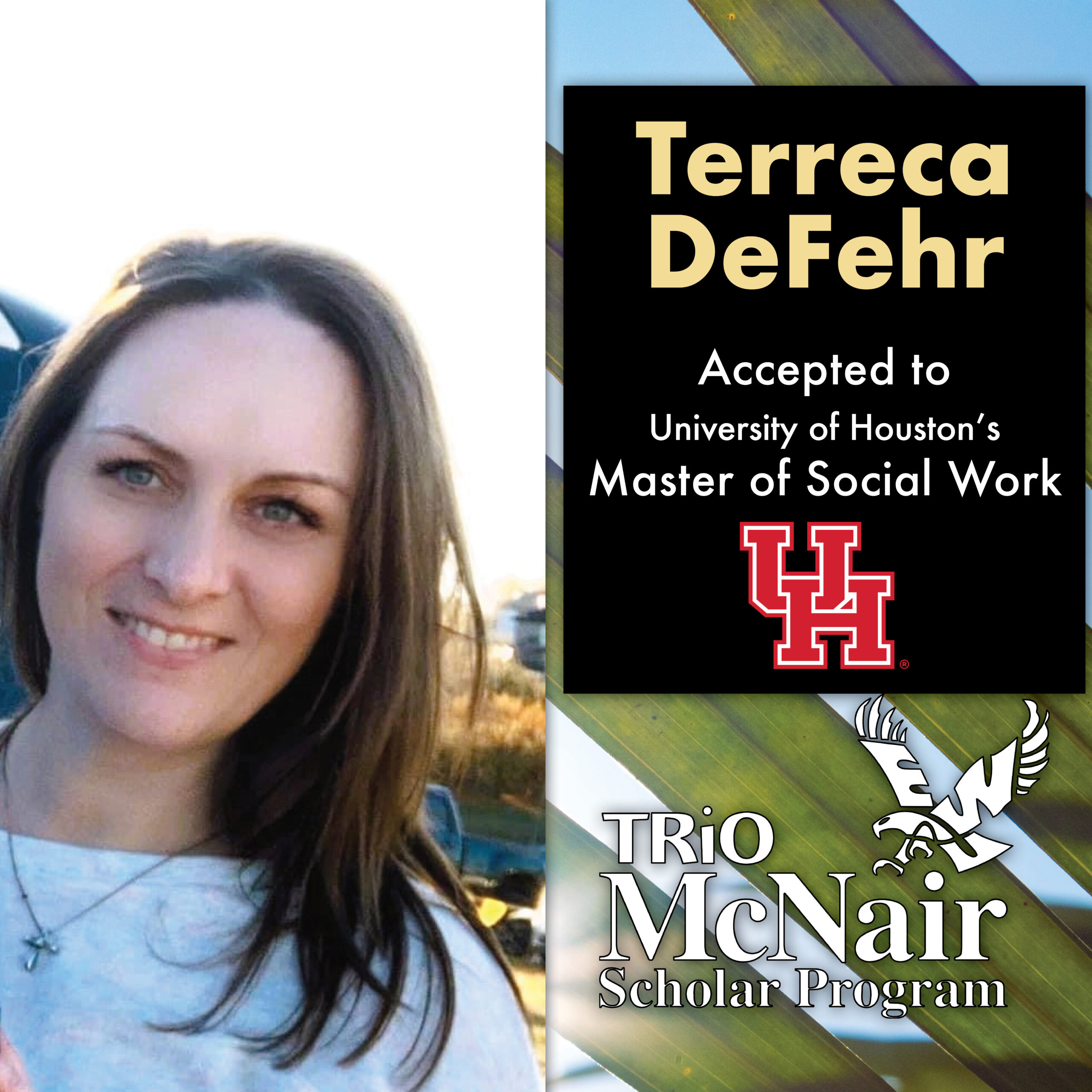Terreca DeFehr
Terreca DeFehr will graduate from Eastern Washington University in 2024, with a major in Psychology and a minor in Industrial and Organizational psychology. She is a first-generation college student. Her summer 2023 research analyzed an existing data set, “Work-Family And Family-Work Conflict As A Function Of Role Commitment And Core Self-Evaluation” with Dr. Jill Seiver as her mentor. Her experience in navigating and reunifying with her family in the Child Welfare system Dependency court system has led her to work as a parent with lived expertise. She has been instrumental in the movement in Washington since 2007. Her leadership has opened doors for parents as professionals for system change. In 2020, she honed in on her organizational leadership by simultaneously restructuring a parent lead program she coordinates and a statewide committee she facilitates. Her abilities for change management led to the development, implementation, recruitment, and sustaining increased involvement of parents and community partners, training, workgroups, and successful outcomes in hopes to create a more just and equitable system for families.
Building on her current work with parents with lived Child Welfare experience, Terreca’s interest in Industrial-Organizational psychology and Organization leadership can provide valuable insights into effective management and leadership practices within the organization. Pursuing a Ph.D. will allow her to deepen her understanding of these fields and conduct research that can contribute to improving outcomes for parents and families involved in the Child Welfare system and lived experts coming into the field as professionals.
2023 EWU Faculty Research Mentor: Dr. Jill Seiver
Research Title: Worklife Balance
Abstract: My research will delve deeper into an existing dataset from Seiver and Pope to examine the impact of role commitment, degree of custody of children, and viewing one’s employment as a job versus career on core self-evaluation and sense of control over work demands. The sample consisted of 508 participants who were recruited through snowball sampling via undergraduate psychology students in two cohorts: 2018-2019 (n=351) and January-June 2021 (n=128). Eligible respondents were required to be parents with at least partial custody of children under 18, employees working at least 20 hours per week, and living with their romantic partner. Respondents who ranked the role of parent #1 reported the least control over their work demands, and those who had sole custody reported lower control over their work demands. Those who said their employment was a career experienced more control over their work and higher core self-evaluations (a combination of self-esteem, self-efficacy, locus of control, and neuroticism) than those whose employment was a job. Work-life balance is imperative to how we spend our time at work and with family, and it appears to matter whether we have a job versus a career, which of our roles we value most, and our degree of responsibility for our children.

EWU McNair Scholar Terreca DeFehr Completes Summer Research Internship

EWU McNair Scholar Terreca DeFehr Honored with Numerica Scholarship

17 McNair Scholars Present at EWU’s 2023 Student Research & Creative Works Symposium

Terreca DeFehr Selected as an EWU McNair Scholar and Awarded Summer Research Internship







